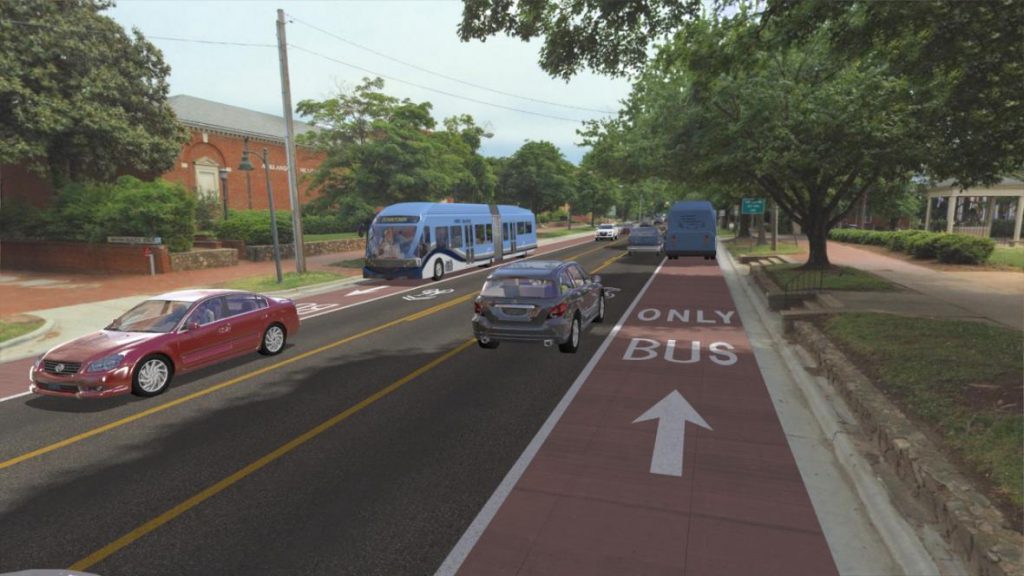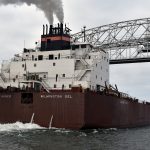I-94 Rebuild Could Be Multi-Modal Success
Transit, buses, ride-sharing, biking, walking should be part of the plan.
The reconstruction of the I-94 corridor from 70th Street to 16th Street in Milwaukee, proposed as part of Governor Tony Evers’ 2021-2023 budget, is a project with significant long-lasting regional impact. It’s a once-in-a-generation opportunity to improve safety and efficiency along this critical corridor. We must ensure that this project is a true economic win, one that both improves the roadway, makes safety upgrades and builds capacity for current and future users, and one that expands multiple transportation modes, including fixed route transit, rideshare services, shuttles, and better conditions for biking and walking. We must act swiftly, and boldly, to achieve a multimodal regional transportation system that allows our region to compete globally.
Funding these kinds of projects is complex, and we recognize that we cannot simply take money that would support the freeway rebuild and shift it to transit or other multimodal improvements. But we can, and should, pursue every opportunity to prioritize transit and other modes. This project presents with an opportunity to do just that, through intentional use of the funds that would come along with this project to lessen congestion.
The timing of this particular project is important. As our region recovers from the economic disruption caused by the COVID-19 pandemic, moving forward on this project now brings thousands of jobs in the next few years. At the same time, smart investments in multimodal transportation, done with dollars that would come along with this project, could fast-track regional multimodal transportation in Southeastern Wisconsin bringing us much closer to the multimodal system our region can leverage for greater economic impact.
The COVID-19 pandemic has exacerbated several long term trends that undermine economic vitality in our region – the spatial mismatch between job opportunities and residents who lack reliable cars, and an aging workforce and stagnant population growth. Strong regional multimodal transportation addresses these challenges head on and deserve our attention as we confront aging and outdated infrastructure.
We call upon Wisconsin’s leadership to think broadly when considering an upgrade of this critical piece of regional infrastructure. Commit to meaningful investments in all modes of travel, including fixed route and next-generation transit, which will position our region for long term success and vitality. Our region has many priorities, but few priorities have more long term impact than infrastructure, and infrastructure is more than roads.
By Dave Steele, Executive Director, Regional Transit Leadership Council and Board Members, Regional Transit Leadership Council, Kathy Ehley, Samantha Maldonado, Mark Gottlieb, Tracy Johnson and Andrew Davis.
(Disclosure: Urban Milwaukee President Jeramey Jannene is a board member of the Regional Transit Leadership Council)
Op-Ed
-
Wisconsin Candidates Decry Money in Politics, Plan to Raise Tons of It
 Dec 15th, 2025 by Ruth Conniff
Dec 15th, 2025 by Ruth Conniff
-
Trump Left Contraceptives to Rot; Women Pay the Price
 Dec 8th, 2025 by Dr. Shefaali Sharma
Dec 8th, 2025 by Dr. Shefaali Sharma
-
Why the Common Council’s Amended Budget is Good Policy for Milwaukee
 Nov 20th, 2025 by Alds. Marina Dimitrijevic and Russell W. Stamper, II
Nov 20th, 2025 by Alds. Marina Dimitrijevic and Russell W. Stamper, II
Transportation
-
Congestion Pricing Cuts Air Pollution in New York City
 Dec 14th, 2025 by Jeff Wood
Dec 14th, 2025 by Jeff Wood
-
FTA Tells Milwaukee to Crack Down on Fare Evasion — Even Where Fares Don’t Exist
 Dec 12th, 2025 by Graham Kilmer
Dec 12th, 2025 by Graham Kilmer
-
Will GOGO’s Bus Service Ever Get Going?
 Dec 9th, 2025 by Jeramey Jannene
Dec 9th, 2025 by Jeramey Jannene






















Dave Steele said, ” Funding these kinds of projects is complex, and we recognize that we cannot simply take money that would support the freeway rebuild and shift it to transit or other multimodal improvements.” Under the Intermodal Surface Transportation Act of 1991 and the 1998 TEA 21 states and cities have the flexibility to spend Interstate money on other transportation facilities including transit, trains and bicycle facilities. WisDOT keeps implying that Federal law limits spending to their plan to widen I 94. It doesn’t.